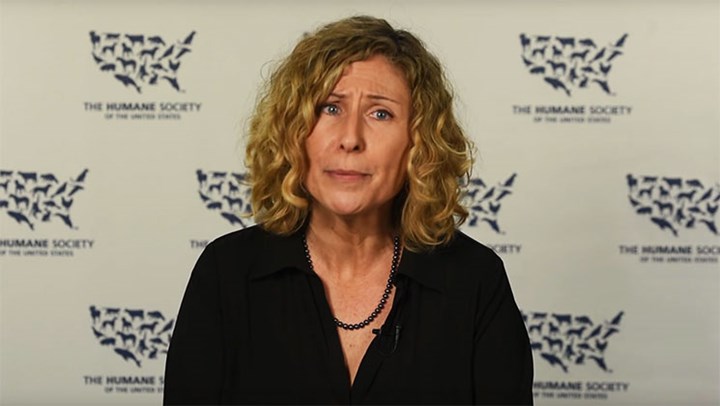
by Catherine Semcer - Monday, March 12, 2018

Wayne Pacelle built a career as America’s leading spokesman for anti-hunting activists as Executive Director of the Humane Society of the United States (HSUS). Now, in a scandalous turn of events, he may best be remembered as a leader who faced multiple accusations of sexually preying on young female staffers while allowing his subordinates to do the same. Following the resignation of seven HSUS Board members and multiple staff after a Board vote to retain Pacelle, he tendered his own resignation, expressing an interest in organizational unity. The organization named Kitty Block as his successor.
Block’s name has not been as widely known as Pacelle’s in campaigns to eliminate hunting but she has been a steadfast captain in campaigns to enact hunting bans worldwide. Armed with a law degree from George Washington University, she joined HSUS as a legal investigator in 1992, quickly rising through the ranks to become Vice President and eventually President of HSUS International. In that role, she represented HSUS at the critical conferences of parties to the Convention on International Trade in Endangered Species (CITES.) This multi-lateral agreement, to which the United States is a signatory, has a deep impact on hunting worldwide, regulating what and how many hunting trophies can be exported from a given country and whether they even can be exported at all. It has influenced the management of wildlife worldwide including elephants, African lions, rhinos and polar bears.
While maintaining a relatively low profile, in her leadership role with HSUS International, Block helped further the idea that holistic conservation programs that include hunting do not conserve wildlife. The HSUS International website claims credit for putting pressure on airlines and shipping companies, driving 42 of them to refuse to transport hunting trophies as cargo. It states that they have sought to use the CITES treaty, as well as the U.S. Endangered Species Act, to limit hunting, especially of African wildlife, and that they were leaders in a lobbying effort resulting in a ban on grizzly bear hunting in British Columbia and restrictions on ivory in the United States. Instead of looking for innovative ways to expand and conserve wildlife habitat, one HSUS International annual report stated the organization was advocating elephant contraception as a way to deal with overpopulations of the African animals—an idea that received funding from the Obama Administration. It also highlights a robust and ongoing lobbying program that stretches to national capitols across the globe.
In a video message to HSUS supporters and staff, Block addressed the aftermath of Pacelle’s exit on the organization stressing a commitment to workplace safety, transparency and trust. Block’s track record at HSUS International shows that hunters can trust that she is likely to continue using HSUS’s $100 million annual budget to mount campaigns that ban hunting and compromise wildlife conservation.
■ ■ ■
About the Author
Catherine E. Semcer is Chief Operations Officer of Humanitarian Operations Protecting Elephants (H.O.P.E.), a U.S.-based non-profit organization that provides training, advisory assistance and procurement services to African anti-poaching programs by leveraging the skill sets of U.S. veterans and the capacities of commercial businesses. A longtime hunter, Semcer is also a member of the International Union for Conservation of Nature’s (ICUN) Sustainable Use Livelihoods Specialist Group (SULi), a global-expert network that promotes both conservation and livelihoods through enhancing equitable and sustainable use of wild species and their associated ecosystems. You can support H.O.P.E.’s efforts to secure a future for Africa’s wildlife by visiting www.saveivory.org.
*Please note that the opinions expressed in this article are strictly her own.
E-mail your comments/questions about this site to:
[email protected]
Proudly supported by The NRA Foundation and Friends of NRA fundraising.
